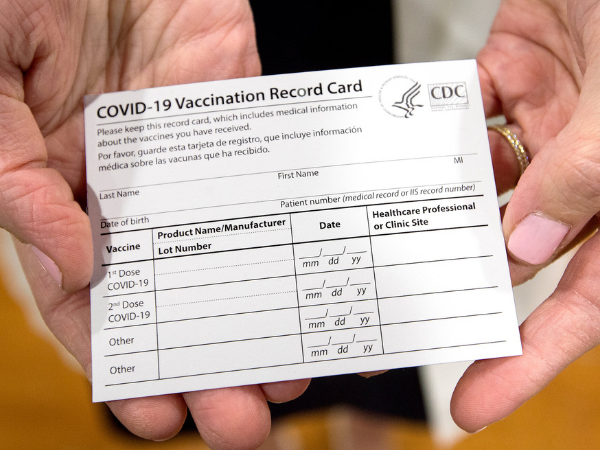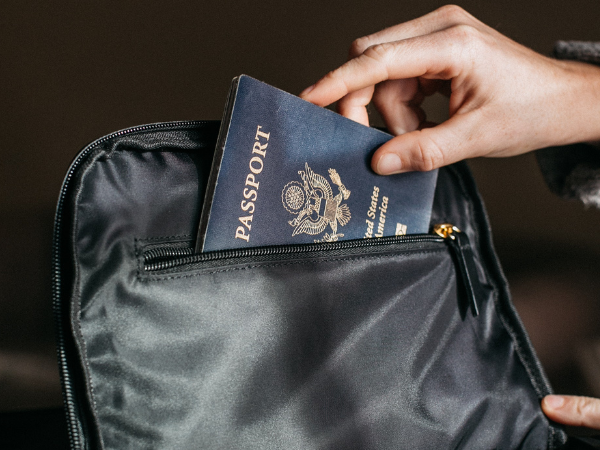Why proof of vaccination is trending around the world
Talks about proof of vaccination for COVID-19 are becoming more common. Some people regard it as one of the steps to get society back to normal. Others fear it may lead to increased monitoring of peoples’ daily lives.
We’ll talk about these potential upsides and downsides first. Then, we will go through examples of COVID-19 proof in the United States and around the world. Later, you’ll see that requiring proof of vaccination during a pandemic isn’t new.
COVID-19 vaccination is one of the biggest ways we’re using it to end the pandemic. However, we will need other methods to make sure it succeeds. Learn how the coronavirus passports may help in beating this virus!
Why do you need a COVID-19 passport?
https://twitter.com/wef/status/1364258722898452481?lang=en
The pandemic presents a huge challenge to all countries. They had to limit outdoor activity to minimize the spread. Meanwhile, they need the former so their economies can run.
If you keep everyone indoors, many companies can’t operate. They need staff working in their offices. Others have roles that can only be done outdoors. In turn, people lose their jobs.
On the other hand, resuming outdoor activities exposes more people to the virus. If you lose too many people to the virus, you won’t have enough to sustain an economy. What should you do?
Proof of vaccination requirements is one of the solutions that most people are talking about. Simply put, people should show proof that they’re fully vaccinated.
How will it work? It depends on your location. Some countries require it for various indoor activities. Entertainment venues may ask for one before you can enter.
Discussions are getting hotter because of the Delta variant. Countries need a solution that somehow lets them promote public health and the economy.
How can proof of vaccination fight COVID-19?
Perhaps COVID vaccine passports could provide this balance. Of course, the results will still depend on how it’s executed. What are its potential benefits, though?
- Promotes vaccination – People might be more willing to get a COVID shot for a vaccination card. Still, countries should inform their people about why they should get vaccinated.
- Return to work – Millions around the world lost their jobs during the public health crisis. COVID passports could help them get new jobs.
- Restart travel – You need more people going places to help businesses. This can increase customers and drive sales. COVID passports can help countries do this safely.
- Promote tourism – Many countries earn a lot of revenue from visiting foreigners. We had to limit it to prevent the risk of getting new variants from tourists. Vax cards could help countries let them in again while keeping the virus out.
Is proof of vaccination enough?
Every method has flaws, even COVID cards. You shouldn’t ignore it outright, though. Instead, learn the drawbacks to make sure they work. Here are some downsides to vaccine passports:
- Wrong assumptions – There’s proof that vaccines work against COVID-19. When people learn this, they might think requiring vaccine passports is useless. It also keeps the virus from spreading. As a result, more people may go against this health measure.
- Discrimination – Those with vaccination status cards will get to do more than those without. For example, restaurants may reserve indoor dining only for those with vax passports.
- Fraud – You have to make sure people can’t make and buy fake COVID passports. Sadly, there are already reports of people buying them online. Perhaps it can be done with a better system than some countries have right now.
- Privacy – Here’s what makes people worry the most about COVID cards. Some have QR codes that show personal info and location when scanned. People are afraid this could lead to more government tracking.
Do we require proof of vaccination now?
When we tested New York’s Excelsior Pass, we found privacy concerns, technical glitches, and questions over who it’s really for. https://t.co/5jFh6TVra9
— MIT Technology Review (@techreview) August 21, 2021
Some parts of the world already require vax cards. We will look at the United States as an example. Specifically, we’ll talk about San Francisco and New York City.
People in the Golden City need to show vaccination records when heading to indoor establishments. San Francisco’s website listed the following examples;
- Restaurants
- Bards
- Clubs
- Gyms
- Large indoor events
- Any indoor event or business that serves food or drinks
What’s more, everyone inside should be 12 years or older. These people should still wear masks. They must prove “full vaccination,” meaning it’s been two weeks since their final dose.
On the other hand, the city of New York has the Excelsior Pass app. It’s laxer compared to San Francisco’s rules. You may choose not to download it.
It will show the vaccines you received and whether or not you have the virus. Still, you need to show a photo ID along with the Pass when entering indoor areas.
Did we have vaccine passports in the past?

Photo Credit: NYtimes.com
Amid the talks about vax passports, you might think that they’re a new concept. Yet, we’ve required proof of vaccination for so many years.
If you remember, we’ve required certain vaccines before COVID. For example, students had to get their shots before going to school. Some workplaces do this too.
We could go even further back in time. In 1951, people had to prove they’re vaccinated against the plague. People came up with the idea in British India.
The place was densely packed with people. If the plague spreads there, it could quickly get out of control. In response, authorities required pilgrims to show proof of vaccination.
Folks got vaccinated against the plague. Eventually, people didn’t need vax cards to travel. Those were only needed until people didn’t have to worry about this illness.
It’s the same with COVID-19. It was an extreme situation that required extreme action. The sooner you get your COVID shot, the sooner we get rid of this virus!
Final thoughts
Again, get your vaccine as soon as you can. Follow your country’s health care guidelines for COVID-19. Don’t stay out for longer than needed. Wear a face mask while outside.
You could do a lot while indoors. For example, you could watch a movie with your buddies. With Teleparty, you can do it without ever leaving your room!
Earn income while indoors! You could start working from home. You can find plenty of options online. Or you could check our picks for the best roles.
Learn more about proof of vaccination for COVID-19
What is a vaccine passport?
It’s a document that shows you’ve completed your COVID-19 shots. It may come as a physical card or a digital app. Check your country if it has such a requirement.
Do I need proof of vaccination?
You may need to show a vaccine card when going to indoor establishments. This will depend on where you live, though. Check your government’s COVID guidelines for more info.
How do I gBelieet a COVID vaccine passport?
This will depend on your country. Some provide mobile apps for it. Others may require printed vaccination records. Please check the guidelines followed in your country.



